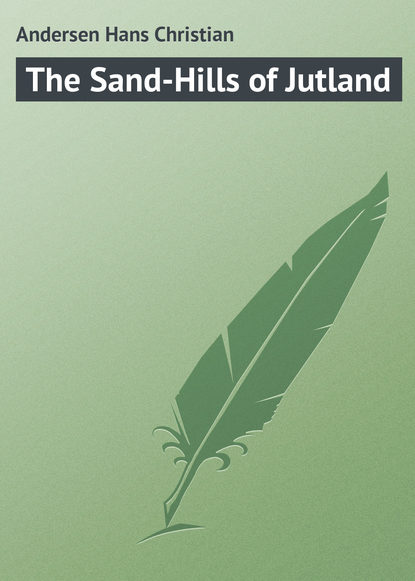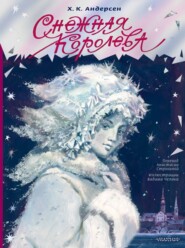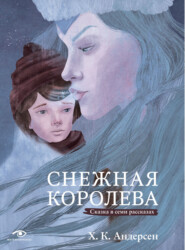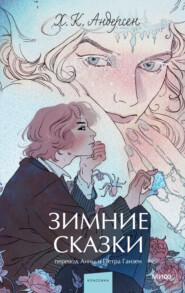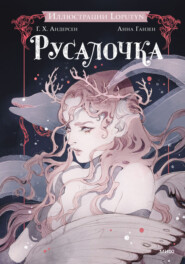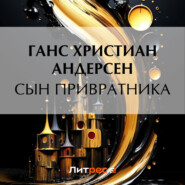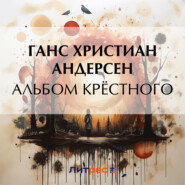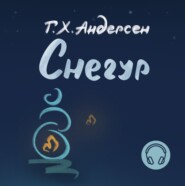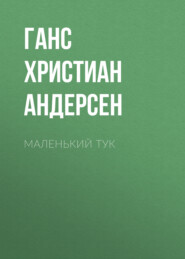По всем вопросам обращайтесь на: info@litportal.ru
(©) 2003-2024.
✖
The Sand-Hills of Jutland
Настройки чтения
Размер шрифта
Высота строк
Поля
"'You may borrow it, but not keep it,' said I.
"'Not keep it!' they all exclaimed together, as they seized my sausage-stick, and, dancing away to the green mossy spot, placed the sausage-stick there in the centre of it. They determined also on having a Maypole; and the stick they had just captured seeming quite suited to their purpose, it was soon ornamented.
"Small spiders spun gold threads around it – hung up waving veils and flags so finely worked, shining so snow-white under the moonbeams, that my eyes were quite dazzled. They took the colours from the wings of the butterflies, and sprinkled them on the white webs, till they seemed to be laden with flowers and diamonds. I did not know my own sausage-stick – it had become such a magnificent Maypole, that certainly had not its equal in the world. And now came tripping forwards the great mass of the elves, most of them very slightly clad; but what they did wear was of the finest materials. I looked on, of course, but in the background, for I was too big for them.
"Then what a game commenced! It was as if a thousand glass bells were ringing, the sound was so clear and full. I fancied the swans were singing, and I also thought I heard cuckoos and thrushes. At length it seemed as if the whole wood was filled with music. There were the sweet voices of children, the ringing of bells, and the songs of birds; and all these melodious sounds seemed to proceed from the elves' Maypole – an orchestra in itself – and that was my sausage-stick. I never would have believed that so much could have come from it; but much, of course, depended on what hands it fell into. I became very much agitated, and I wept, as a little mouse can weep, from sheer pleasure.
"The night was all too short; but, at this time of the year, the nights are not long up yonder. At the dawn of day there arose a fresh breeze; the surface of the lake became ruffled; all the delicately fine veils and flags disappeared in the air; the swinging kiosks of cobwebs, the suspension bridges and balustrades, or whatever they are called, which were constructed from leaf to leaf, vanished into nothing; six elves brought me my sausage-stick, and at the same time asked if I had any wish they could fulfil; whereupon I begged them to tell me how soup could be made from a sausage-stick.
"'What we can do,' said the foremost, laughing, 'you have just seen. You could scarcely have recognised your sausage-stick.'
"'You mean as you transformed it,' said I; and then I told them the cause of my journey, and what was expected at home from it. 'Of what use,' I asked, 'will it be to the King of the Mice and all our large community that I have seen this beautiful sight? I cannot shake the sausage-stick and say, You see here the stick – now comes the soup! That would be like a hoax.'
"Then the elf dipped its little finger into a blue violet, and said to me, —
"'Look! I spread a charm over your walking-stick, and when you return to the palace of the King of the Mice make it touch the king's warm breast, and violets will spring from every part of the staff, even in the coldest winter weather. See! you have now something worth taking home, and perhaps a little more.'"
But before the little mouse had finished repeating what the elf had said she laid her staff against the king's breast, and sure enough there sprang forth from it the loveliest flowers. They yielded so strong a perfume that the king commanded that the mice who stood nearest the chimney should stick their tails in the fire, in order that the smell of the singed hair should overpower the odour from the flowers, which was very offensive.
"But what was 'the little more' you spoke of?" asked the King of the Mice.
"Oh!" said the little mouse, "it is what is called an effect;" and so she turned her sausage-stick. And behold, there were no more flowers visible! She held only the naked stick, and she moved it like a stick for beating time.
"The violets are for sight, smell, and touch, the elf told me; but there are still wanting hearing and taste."
She beat time, and there was music – not such, however, as sounded in the wood at the elfin fête; no, such as is heard at times in the kitchen. It came suddenly, like the wind whistling down the chimney. The pots and the pans boiled over, and the shovel thundered against the large brass kettle. It stopped as suddenly as it had commenced; and then was only to be heard the smothered song of the tea-kettle, which was so strange with its tones rising and falling, and the little pot and the large pot boiling, the one not troubling itself about the other, as if neither could think. Then the little mouse moved her time-stick faster and faster; the pots bubbled up and boiled over; the wind roared in the chimney; the commotion was so great that the little mouse herself got frightened, and dropped the stick.
"It was hard work to make that soup," cried the old king; "but where is the result – the dish?"
"That is all," said the little mouse, courtesying.
"All! Then let us hear what the next has to tell," said the king.
III.
WHAT THE SECOND MOUSE HAD TO RELATE
"I was born in the palace library," said the second mouse. "I, and several members of my family there, have never had the good fortune to enter the dining-room, let alone the pantry. It was only when I first began my travels, and now again to-day, that I have even beheld a kitchen. We had often to endure hunger in the library, but we acquired much knowledge. The report of the reward offered by royalty for the discovery of the process by which soup could be made of a sausage-stick reached us even up there, and my grandmother thereupon looked for a manuscript which, though she could not read herself, she had heard read, wherein it was said, —
"'A poet can make soup out of a sausage-stick.'
"She asked me if I were a poet. I confessed I was not, to which she replied that I must go and try to become one. I begged to know what was to be done to acquire this art, for it appeared to me about as difficult to attain as to make the soup itself. But my grandmother had heard a good deal of reading, and she told me that the three things principally necessary were – good sense, imagination, and feeling. 'If thou canst go and furnish thyself with these, thou wilt be a poet; and there will be every chance of thy success in the matter of the sausage-stick.'
"So I set off to the westward, out into the wide world, to become a poet.
"Good sense I knew was the most important of all things, the two other qualities not being so highly esteemed. So I went first after good sense. Well, where did it dwell? 'Go to the ant; consider her ways, and be wise,' a great king of the Hebrews has said. I knew this from the library, and I never stopped until I reached a large ant-hill; and there I settled myself to watch them.
"They are a very respectable tribe, the ants, and full of good sense; everything among them is as correctly done as a well-calculated sum in arithmetic. 'To labour and to lay eggs,' say they, 'is to live in the present, and to provide for the future;' and that they assuredly do. They divide themselves into the clean ants and the dirty ones. Rank is distinguished by a number. The queen ant is number one, and her will is their only law. She has swallowed all the wisdom, and it was of consequence to me to listen to her; but she said so much and was so profoundly wise, that I could scarcely comprehend her.
"She said that their hill was the highest in the world; but close to the hill stood a tree that was higher, certainly much higher. She could not deny this, so she did not allude to it. One evening an ant had lost his way, and finding himself on the tree, he crept up the trunk, not as far as the top, but much higher than any ant had ever gone before; and when he descended, and found his way home at last, he imprudently told in the ant-hill of something much higher at a little distance from it. This was taken by one and all as an affront to the whole community, and the offending ant was condemned to have his mouth muzzled, as well as to perpetual solitude. But shortly after another ant got as far as the tree, and made a similar journey and a similar discovery. He spoke of it, however, discreetly and mysteriously, and as he happened to be an ant of consideration – one of the clean – they believed him; and when he died they placed an egg-shell over him as a monument in honour of his extensive knowledge.
"I observed," said the little mouse, "that the ants continually move with their eggs on their backs. One of them dropped hers. She tried very hard to get it up again, but could not succeed; then two others came and helped her with all their might, until they had nearly lost their own eggs, whereupon they let the attempt alone, for one is nearest to one's self; and the queen ant remarked that both heart and good sense had been shown. 'These two qualities place us ants among reasonable beings,' she said. 'Sense ought to be, and is, of the most consequence; and I have the most of that;' and she raised herself, in her self-satisfaction, on her hind leg. I could not mistake her, and I swallowed her. 'Go to the ant; consider her ways, and be wise.' I had now the queen.
"I then went nearer to the above-mentioned large tree: it was an oak. It had high branches, a majestic crown of leaves, and was very old. I perceived that a living creature resided in it – a female. She was called a Dryad. She had been born with the tree, and would die with it. I had heard of this in the library; and now I beheld one of the real trees, and a real oak-nymph. She uttered a frightful shriek when she saw me near her; for she was like all women, very much afraid of mice. She, however, had more reason to be afraid of me than others of her sex have, for I could have gnawed the tree in two, and on it hung her life. I spoke to her kindly and cordially. This gave her courage, and she took me in her slender hand; and when she understood what had brought me out into the wide world, she promised that I should, perhaps that very night, become possessed of one of the two treasures of which I was in search. She told me that Imagination was her very particular friend; that he was as charming as the God of Love; and that he often, for many an hour, sought repose under the spreading foliage of the tree, which then sighed more musically over the two. He called her his dryad, she said, and the tree his tree. The mighty, gnarled, majestic oak was just to his taste, with its broad roots sunk deep into the earth, its trunk and its coronal rising so high in the free air, meeting the drifting snow, the cutting winds, and the bright sunshine, before they had reached the ground. All this she said, and she continued: 'The birds sing up yonder, and tell of foreign lands, and upon the only decayed branch the stork has built a nest; and it is a pleasure to hear of the country where the pyramids stand. All this Fancy can well depict, and very much more. I myself can describe life in the woods from the time that I was quite little, and this tree was so tiny that a nettle could have covered it, until now, when it is so strong and mighty. Sit down yonder under the woodruffs, and be on the look-out. When Fancy comes I shall find an opportunity of pinching his wing, and stealing a little feather from it. You shall take that, and no poet will ever have been better provided. Will that do?'
"And Imagination came; a feather was plucked from him, and I got it," said the little mouse. "I held it in the water till it became soft. It was still hard of digestion, but I managed to gnaw it all up. It is not at all easy to stuff one's self so as to be a poet – there is so much to be put in one. I had now got two of the ingredients – good sense and imagination; and I knew by their help that the third ingredient was to be found in the library; for a great man has said and written that there are romances which are useful in easing people of a superfluity of tears, and which also act as a sort of swamp to cast feelings into. I remembered some of these books; they had always looked very enticing to me. They were so thumbed, so greasy, they must have been very popular.
"I returned home to the library, ate almost as much as a whole romance – that is to say, the soft part of it, the pith – but the crust, the binding, I let alone. When I had digested this, and another to boot, I perceived how my inside was stirred up; so I ate part of a third, and then I considered myself a poet, and every one about me said I was. I had headaches, of course, and all sorts of aches. I thought over what story I could work up about a sausage-stick, and there was no end of sticks and pegs crowding my mind. The queen ant had had an uncommon intellect. I remembered the man who took a white peg into his mouth, and both he and it became invisible. All my thoughts ran upon sticks. A poet can write even upon these; and I am a poet I trust, for I have fagged hard to be one. I shall be able every day in the week to amuse you with the story of a stick. This is my soup."
"Let us hear the third," said the King of the Mice.
"Pip, pip!" said a little mouse at the kitchen door. It was the fourth of them, the one they thought dead. She tripped in, and jumped upon the upper end of the sausage-stick with the black crape. She had been journeying day and night, travelling on the railroad by the goods train, in which she took great pleasure, and yet she had almost arrived too late; but she hurried forward, puffing and panting, and looking very much jaded. She had lost her sausage-stick, but not her voice; for she began talking with the utmost velocity, as if every one was dying to hear her, and no one could say anything to the purpose but herself. How she did chatter! But she had arrived so unexpectedly that no one had time to find fault with her or her talking, so she went on. Now let us listen.
IV.
WHAT THE FOURTH MOUSE – WHO SPOKE BEFORE THE THIRD ONE HAD SPOKEN – HAD TO RELATE
"I went straight to the greatest city," she said. "I do not remember its name. I do not recollect names well. I came from the railway with confiscated goods to the town council-hall, and there I ran to the jailer. He spoke of his prisoners, especially of one of them, who had uttered some very imprudent words; and when these had been repeated, and written down and read, 'The whole,' said he, 'was only – soup of a sausage-stick; but that soup may cost him dear.' I felt interested in the prisoner," continued the little mouse, "and I watched for an opportunity to go in where he was. There is always a mouse-hole behind locked doors. He looked very pale, had a dark beard, and large shining eyes. The lamp smoked; but the walls were accustomed to this. They did not turn any blacker. The prisoner was scratching on them both pictures and verses; but I did not read the latter. I fancy he was tired of being alone, for I was a welcome guest. He enticed me with crumbs of bread, with his flute, and kind words. He was so happy with me! I put confidence in him, and we became friends. He shared with me bread and water, and gave me cheese and sausages. I lived luxuriously; but it was not alone the good cheer that detained me. He allowed me to run upon his hand and arm all the way up to his shoulder; he allowed me to creep into his beard, and called me his little friend. I became very dear to him, and our regard was mutual. I forgot my errand out in the wide world; I forgot my sausage-stick in a crevice in the floor; and there it still lies. I wished to remain where I was; for, if I left him, the poor prisoner would have nothing to care for in this world. I remained; but he, alas! did not. He spoke to me so sadly for the last time, gave me a double allowance of bread and cheese parings, kissed his finger to me, and then he was gone – gone, never to return. I do not know his history. 'Soup of a sausage-stick!' said the jailer, and I went to him; but I was wrong to trust in him. He took me up, indeed, in his hand; but he put me in a cage, a treadmill. That was hard work – jumping and jumping without getting on a bit, and only to be laughed at.
"The jailer's grandchild was a pretty little fellow, with waving hair as yellow as gold, sparkling, joyous eyes, and a laughing mouth.
"'Poor little mouse!' he exclaimed, peeping in at my horrid cage, and at the same time drawing up the iron pin that closed it.
"I seized the opportunity, and sprang first to the window-ledge, and thence to the conduit-pipe. Free, free! that was all I could think of, and not the object of my journey.
"It became dark – it was almost night. I took up my lodgings in a tower, where dwelt a watchman and an owl. I could not trust either of them, and the owl least of the two. It resembles a cat, and has one great fault – that it eats mice. But one can be on one's guard, and that I assuredly would be. She was a respectable, extremely well-educated old owl. She knew more than the watchman, and almost as much as I myself did. The young owls made a great fuss about everything.
"'Don't make soup of a sausage-stick,' said she.
"This was the severest thing she could say to them, she was so very fond of her family. I felt so much inclined to place some reliance in her that I cried "Pip!" from the crevice in which I was concealed. My confidence in her seemed to please her, and she assured me that I should be safe under her protection; that no animal would be permitted to injure me until winter, when she might herself fall upon me, as food would be scarce.
"She was very wise in all things. She proved to me that the watchman could not blow a blast without his horn, which hung loosely about him.
"He piques himself exceedingly upon his performances, and fancies he is the owl of the tower. The sound ought to be very loud, but it is extremely weak. 'Soup of a sausage-stick!'
"I begged her to give me the recipe for the soup, and she explained it to me thus: —
"'Soup of a sausage-stick is but a cant phrase among men, and is differently interpreted. Every one fancies his own interpretation the best, but in sober reality there is nothing in it whatsoever.'
"'Nothing!' cried I. That was a poser. 'Truth is not always pleasant, but truth is always the best.' So also said the old owl. I considered the matter, and came to the conclusion that when I brought the best I brought more than 'soup of a sausage-stick;' and thereupon I hastened homewards, so that I might arrive in good time to bring what is most valuable – the truth. The mice are an enlightened community, and their king is the cleverest of them all. He can make me his queen for the sake of Truth."
"Thy truth is a falsehood," said the mouse who had not yet had an opportunity of speaking. "I can make the soup, and I will do it."
V.
HOW THE SOUP WAS MADE
"I have not travelled at all," said the last mouse. "I remained in our own country. It is not necessary to go to foreign lands – one can learn as well at home. I remained there. I have not acquired any information of unnatural beings. I have not eaten information, or conversed with owls. I confined myself to original thoughts. Will some one now be so good as to fill the kettle with water, and put it on? Let there be plenty of fire under it. Let the water boil – boil briskly; then throw the sausage-stick in. Will his majesty the King of the Mice be so condescending as to put his tail into the boiling pot, and stir it about? The longer he stirs it, the richer the soup will become. It costs nothing, and requires no other ingredients – it only needs to be stirred."





